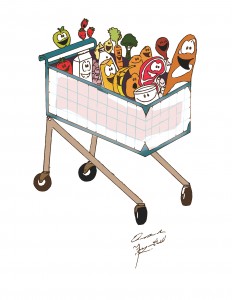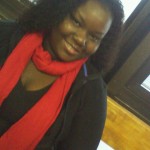Rants and Raves
PEN New England deems Chuck Berry a literary lion
Sunday, Mar 04, 2012 3:21 pm
By Leslie SchultzÂ
On February 26, in the lingering shadow of the bloated Academy Awards show, a handful of accomplished writers of prose, poetry, and song met at the JFK Library overlooking Boston’s harbor to honor two musical legends with PEN New England’s first-ever Song Lyrics of Literary Excellence Award. The committee vetting the award included Paul Simon, Elvis Costello, Salman Rushdie, Bono, Rosanne Cash, Smokey Robinson, and Paul Muldoon—all unassailable talents in their own rights. So which two songwriters did this stellar panel choose to honor for literary excellence? Leonard Cohen and, ahem, Chuck Berry.
Let me make a few declarations upfront. One, I love Chuck Berry’s music. LOVE it. The guy can rock. Two, no one deserved to be inducted into The Rock and Roll Hall of Fame in 1986 more than the man who brought us “Maybellene†and “Johnny B. Goode.†I dare you to sit still if one of those tunes comes on the radio. In fact, I DOUBLE DOG dare you. Three, Berry’s musical influence extends from the Beatles to current students at the New England Conservatory. No question, Berry’s exuberant guitar-playing, pioneering rhythms, and passionate performances place him among the great icons of early R&R. But literary lyrics?  Â
Consider these lines from Berry’s “Roll Over Beethovenâ€:
Well, early in the mornin’ I’m a givin’ you a warnin’
don’t you step on my blue suede shoes.
Hey diddle diddle, I am playin’ my fiddle,
ain’t got nothin’ to lose
Now, allusions to other works (an old English nursery rhyme, say, or another songwriter’s hit) may track a great literary tradition, but they do not necessarily make a work “literary.†Clever? Perhaps. Catchy? Sure. But literary?
Maybe the PEN committee considered other elements of Berry’s writing. Possibly they count Berry as one of the better storytellers in Musicland. (I’m thinking here of “Memphis, Tennessee,†which tells a sweet tale of a father trying to get in touch with his young daughter by calling information.) But Stephen King can spin a good yarn, too, and I doubt he’ll win a Pulitzer in literature any time soon.
Right about now, you might be thinking that I’m waxing a tad mean-spirited. So let me move off of Berry’s lyrics and onto Cohen’s. Here’s a verse of his much-covered “Hallelujahâ€:
Maybe there’s a God above
but all I’ve ever learned from love
was how to shoot at someone who outdrew you.
It’s not a cry you can hear at night.
It’s not somebody who has seen the light.
It’s a cold and it’s a broken Hallelujah.
Looks like Cohen missed an opportunity to refer to other master-crafters here. Oh, well. That aside, I cannot think of a more vivid or original way to describe the end of a love affair than “It’s a cold and it’s a broken Hallelujah.†That is one mighty fine metaphor.
Then there’s the issue of content. With some exceptions, Berry’s subject matter largely focuses on dancehall shenanigans and frustrated young lust. Those subjects seem trivial compared to Cohen’s themes of life and death, love and desire, faith and fear, the ache for redemption—your basic weighty issues of the human condition, and the kinds of themes I expect from literary endeavor.  Â
All that said, it’s not my intention to question Berry’s songwriting ability, or even compare it to Cohen’s. Them’s apples and oranges. Their songs are constructed for very different effects and, unlike Chuck’s work, most of Lenny’s songs are damn difficult to dance to. My intention here is simply to plead for clarity about the PEN committee members’ decision to recognize Chuck Berry’s literary achievement. The members may, in fact, have some very good reasons for their curious selection. I would like to know what they are. I can’t find their logic outlined anywhere in the news stories covering the awards ceremony, nor does an explanation appear on the PEN New England web site.
I assume PEN N.E. will be convening committees for this annual award for years to come. The first award set the tone, so I would welcome insight into what we can expect in future from this well-respected organization dedicated to advancing the region’s literary culture. I’d like to think that in the ensuing weeks and months the members would consider discounting lyricists with sentiments comparable to this snippet of Berry verse:
My ding-a-ling,
my ding-a-ling,
won’t you play
 with my ding-a-ling?
Â
Leslie Schultz is the founding editor of New Paris Press. She can be reached at newparispressfb@gmail.com.






Leave a Reply